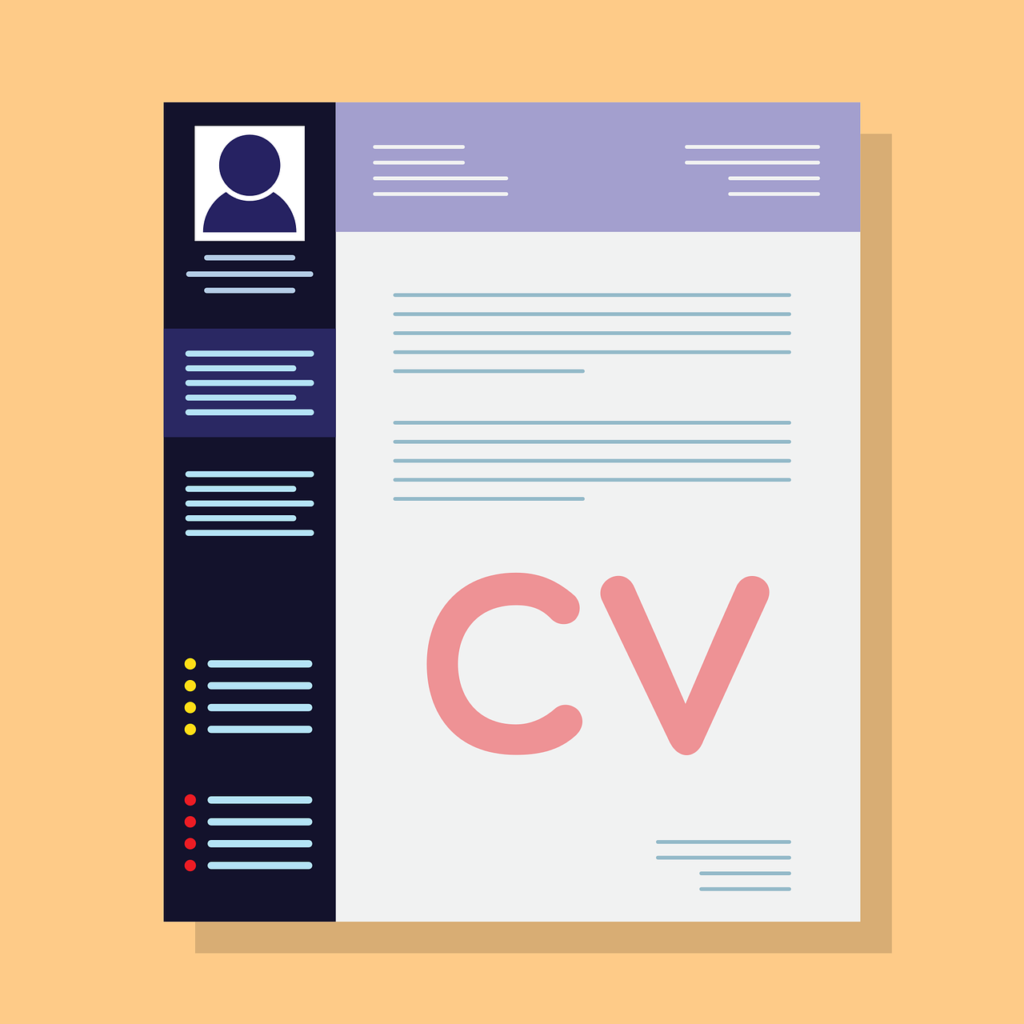Resume:
A resume is a brief and targeted document that is an essential tool in the job application process. To give prospective employers a brief overview of your professional history, it is intended to showcase your qualifications, talents, and pertinent experiences.

Curriculum Vitae (CV):
A curriculum vitae, often known as a CV, is a comprehensive document that provides a full overview of your academic and professional background. It is extensively employed in academic and research environments, as well as in specific European job markets.

Comparison table
| Aspect | Resume | Curriculum Vitae (CV) |
|---|---|---|
| Purpose | Tailored for specific job applications | Comprehensive overview of entire career |
| Length | Typically 1-2 pages in length | Longer and more detailed, often multiple pages |
| Content | Emphasizes relevant skills and experience | Includes all academic and professional information |
| Sections | Common sections: Contact, Summary/Objective, Work Experience, Education, and skills | Extensive sections: Contact, Education, Research, Publications, Awards, Honors, Professional Experience, Skills, etc. |
| Focus | Highlights recent and relevant achievements | Covers entire career, including academic and professional history |
| Order of Information | Reverse chronological order for work experience | Generally, chronological order for all sections |
| Customization | Tailored for each job application | Generally static and doesn’t change frequently |
| Used in | Common in the United States and Canada | Common in academic, scientific, and European job markets |
| Photograph | Rarely includes a photograph | May include a photograph in some countries |
| References | Usually, “references are available upon request.” | May include references or a reference section |
Conclusion
To sum up, it’s crucial to comprehend the distinctions between a resume and a curriculum vitae (CV) to properly communicate one’s qualifications in a variety of professional settings. Each document has a specific function; resumes are succinct job application tools, whereas CVs offer thorough records of academic and professional accomplishments.
Success in the cutthroat job market or academic endeavors depends on tailoring your content to the particular requirements of your intended audience and setting. Your chances of accomplishing your career goals can be greatly improved by giving careful consideration to the content, structure, and relevance of the opportunity at hand while creating a resume or CV.
